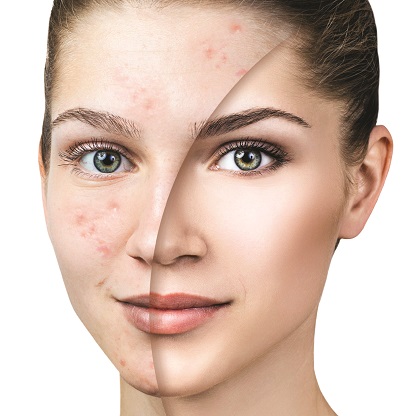By Shahnaz Husain
Pimples and acne constitute one of the most common skin conditions. They appear at a time when the body goes through hormonal activity, mostly during puberty. However, there can be many other causes that lead to pimples and acne. One of the main causes is an oily skin, leading to the pores getting clogged with hardened oil. The clogged oil along with sweat deposits and dirt irritate the surrounding tissues and cause a pimple. An oily and sweaty skin attracts more dirt and chemical pollutants. The neglect of proper skin care and stress can also aggravate acne.
We do not actually think of it, but there can be other common causes that lead to acne or aggravate the condition. Cell phones, for example, are also known to cause an acne condition and problem, because it contains a lot of germs. We keep touching the cell phone to our cheeks and never clean it as much as it should. Similarly, those who wear spectacles, or glasses, can also be prone to acne. This is because spectacles can attract dirt, chemical pollutants, oil and stale sweat deposits, which remain on the skin. If you have dandruff, the flakes from the hairline can fall on the side of face and be trapped by the glasses. Thus, they remain on the face and can clog the pores, leading to blackheads, pimples and acne. Thus, spectacles can be a common cause of breakouts. Avoid wearing your glasses on the head, as many people often do. Oil and dandruff flakes can be carried to your face through the hair via your glasses.
Daily cleansing and skin care, with appropriate products, is the only way of protecting the skin from eruptions. In fact, night-time cleansing is particularly important, in order to remove the dirt, sweat, oil and make-up that is deposited on the skin during the day. For acne prone skin, use a medicated cleanser or face wash twice a day. Wash the face several times a day with plenty of plain water. Avoid using too much soap and water several times a day, as this can leave the skin too alkaline and thus, get prone to bacterial attack.
Subscribe to read the full article:

